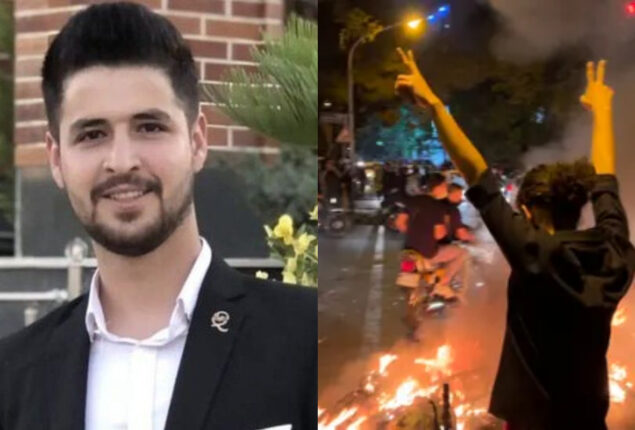Iran protests: Authorities executes second protester
In connection with the nearly three-month-long wave of anti-government protests, Iran has...

100 detainees facing death penalty, says rights group
At least 100 people have now either received death sentences or have been charged with crimes carrying the death penalty because of the Iranian protests, said a rights group,
Iran Human Rights (IHR), a Norwegian organization, reported that five women were among those who could be put to death.
It warned that due to family pressure to maintain silence, the actual number of protestors facing the death penalty was likely far higher.
Following what critics said were fraudulent trials, two individuals were hanged this month.
The Revolutionary Courts declared Mohsen Shekari and Majidreza Rahnavard, both 23 years old, guilty of the nebulous national security accusation of “enmity against God.”
For just over 100 days, Iran has been plagued by demonstrations against the country’s clerical establishment.
They started when Mahsa Amini, 22, who was held by morality police in Tehran on September 13 for reportedly wearing her hijab (headscarf) “improperly,” passed away while in detention. Mahsa was 22 years old.
Authorities have used deadly force in response to the protests, portraying them as being sponsored by foreign governments.
According to IHR, at least 476 protestors have died so far, including 64 children and 34 women.
In a study released on Tuesday, the organization listed 100 people whose punishments or charges had either been made public by government, reported by their relatives or media, or both.
All defendants had been “deprived of the right to access their own lawyer, due process and fair trials”, it said.
“In cases where they have managed to make contact, or details of their cases [have been] reported by cellmates and human rights defenders, all have been subjected to physical and mental torture to force false self-incriminating confessions.”
Mohammad Ghobadlou, 22, who had his death sentence upheld by the Supreme Court on Saturday, is one of those who is in danger of being put to death soon.
After being charged with ramming a group of policemen at a protest in Tehran in September, killing one of them, he was found guilty of “enmity against God.”
According to his mother, he has bipolar disorder and was hastily sentenced to death at the first hearing of his trial without the presence of his selected attorneys.
Amnesty International expressed worry that he had endured torture or other cruel treatment while being held, citing a forensic examination that revealed bruises and injuries on his arm, elbow, and shoulder blade.
One of the five women facing allegations that could result in the death penalty is Mojgan Kavousi, a human rights advocate and teacher of Kurdish who, according to IHR, has been accused of “corruption on Earth.”
At the beginning of Ms. Kavousi’s trial in Sari last week, a prosecutor allegedly accused her of “pushing individuals to depravity by publishing posts on social media.”
“By issuing death sentences and executing some of them, [the authorities] want to make people go home,” IHR director Mahmood Amiry Moghaddam told news agency.
“It has some effect,” he said, but added that “what we’ve observed in general is more anger against the authorities.”
On Tuesday, the UK announced that it was urgently requesting information from Iranian authorities over reports that the Revolutionary Guards had detained seven dual citizens of the UK and Iran for allegedly taking part in the protests.
“We have always said that we will never accept our nationals being used for diplomatic leverage,” a Downing Street spokesman said.
Authorities in France announced that they were looking into the death of an Iranian man who was discovered in the River Rhone in Lyon late on Monday as a possible suicide.
Mohammad Moradi, 38, posted on social media that he intended to commit himself in order to raise awareness of the crackdown in Iran.
In the meantime, prominent Iranian chess player Sara Khadem participated in a tournament in Kazakhstan for the second day in a row without a hijab, seemingly as a show of support for the female-led protest movement.
When representing Iran in an official capacity overseas, ladies must adhere to the country’s dress code.
Catch all the World News, Breaking News Event and Latest News Updates on The BOL News
Download The BOL News App to get the Daily News Update & Follow us on Google News.